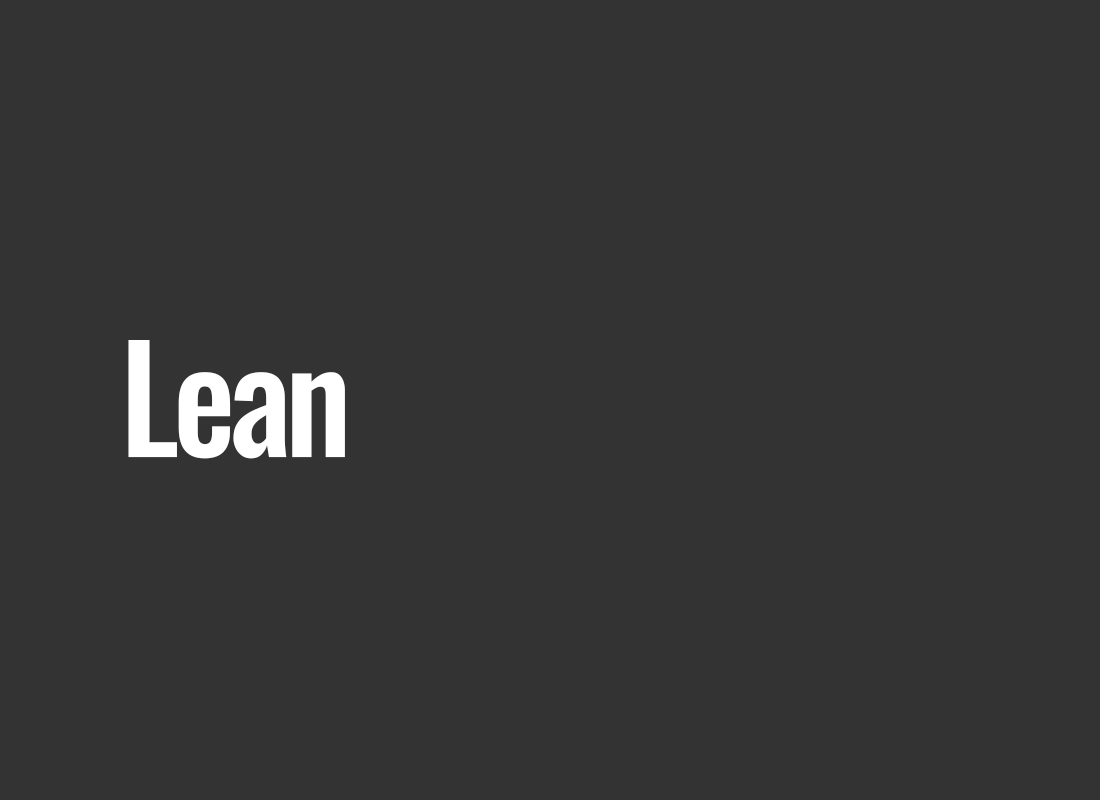Lean
Lean is not just a tool, but an entire business philosophy aimed at eliminating waste and delivering maximum value to the customer with minimal resource consumption. It represents a revolutionary approach to managing processes, assuming that every organization can find and improve its operations by eliminating unnecessary elements that do not contribute to the final value of the product or service.
The Lean philosophy is based on several fundamental principles. The first is the identification and elimination of waste, not only in terms of material resources but also time, energy, and skills. Another principle is focusing on value, understanding what is crucial for the customer, and concentrating on delivering it in the most efficient way. Continuous improvement is the third pillar of Lean, encouraging the constant enhancement of processes based on data and feedback.
Lean is not just a theory; it is a practical tool that can revolutionize the way organizations operate. Shortening the production cycle, minimizing operational costs, and increasing process efficiency are just some of the benefits that can result from implementing Lean philosophy.
Innovative Applications of Lean
In today's business environment, where speed, flexibility, and efficiency are key elements of success, Lean approaches become essential tools for organizations seeking to optimize their operations. Below, we'll explore how the Lean philosophy finds practical application in UX design, e-commerce, marketing, business, and IT.
Effective Application of Lean in User Experience Design:
- Efficient elimination of waste in the user interface. In the UX domain, Lean offers an approach that allows designers to identify and eliminate unnecessary elements in the interface that do not contribute to improved usability. By analyzing user behavior data, organizations can precisely determine which features are crucial for customer satisfaction and then focus on refining them.
- Continuous improvement of the product. Lean also enables continuous improvement of UX products. Through regular testing, gathering user feedback, and iteratively introducing enhancements, organizations can deliver applications and websites that not only meet expectations but exceed them.
Revolutionizing E-commerce through Lean Principles:
- Supply chain optimization. In the e-commerce industry, where delivery time and warehouse efficiency are crucial, Lean becomes a key tool. Eliminating excess inventory, reducing order processing time, and optimizing the packing process are some aspects that can materialize in faster and more efficient customer service.
- Personalization and value delivery. The Lean concept in e-commerce also includes delivering value through personalization. Analyzing customer purchase data allows understanding their needs and preferences, enabling the delivery of more personalized offers and increasing customer loyalty.
Marketing in the Lean Era:
- Testing and improving campaigns. In the field of marketing, Lean enables effective testing of various strategies. By analyzing data on the effectiveness of individual campaigns, organizations can quickly adjust their approach, eliminating ineffective elements and focusing on those that bring the most value.
- Tailoring messages to the audience. Lean in marketing also means tailoring messages to specific target groups. By analyzing demographic data, purchasing preferences, and online behaviors, organizations can create personalized campaigns that better resonate with their target audience.
Business in the Lean Era:
- Lean Startup model. In the business domain, especially in startups, the introduction of the Lean Startup model can be observed. Entrepreneurs test their ideas in the market, gather customer feedback, and iterate quickly on their product. This approach minimizes risk and allows for more effective adaptation to changes in the business environment.
- Effective communication within the organization. Lean also involves a change in organizational culture. It promotes efficient communication within the company, eliminating unnecessary bureaucracy and improving the flow of information. This is crucial for quickly responding to market changes and shortening the time to implement new solutions.
Summary
In summary, Lean philosophy is not just a set of tools but an entire concept of changing the mindset within an organization. Regardless of the industry, Lean principles enable effective waste elimination, focus on value, and continuous improvement. Companies that successfully implement Lean notice improved efficiency, shortened product cycles, and increased adaptability to market changes. In an era of dynamic changes and competition, Lean becomes a key tool for those who not only want to survive but also succeed in business.




